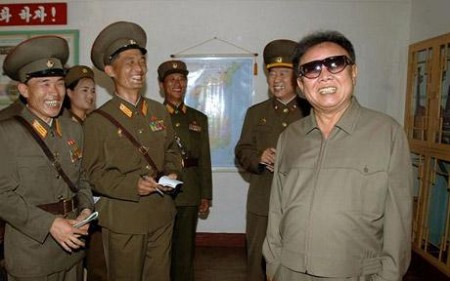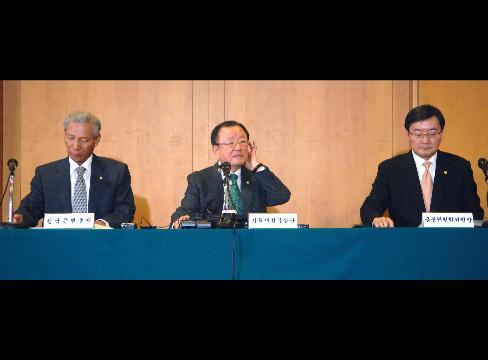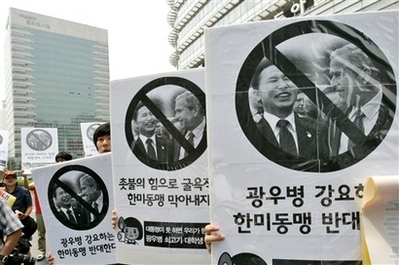The confrontaion between North and South Korea has escalated with Kim Jong-il’s regime claiming it was on the ‘brink of war’ after tearing up a non-aggression pact signed in 1991.

North and South Korea stand on the ‘brink of war’ as Kim Jong-il’s tears up the non-aggression pact Photo: REUTERS
In a significant escalation of tensions, North Korea cancelled all military and political agreements after accusing Seoul of aggressive posturing.
Pyongyang’s decision to nullify all accords increases the prospect of an armed confrontation on the Peninsula, where over a million soldiers face each other across the Demilitarised Zone that divides the two Koreas.
North Korea’s Committee for the Peaceful Reunification of Korea blamed the South for pushing the two countries “to the brink of a war”.
Pyongyang said it now regarded the maritime border between the two states as “void”. The last time the two countries clashed militarily was at the disputed frontier in the Yellow Sea, when their navies fought a deadly gun battle in June 2002.

